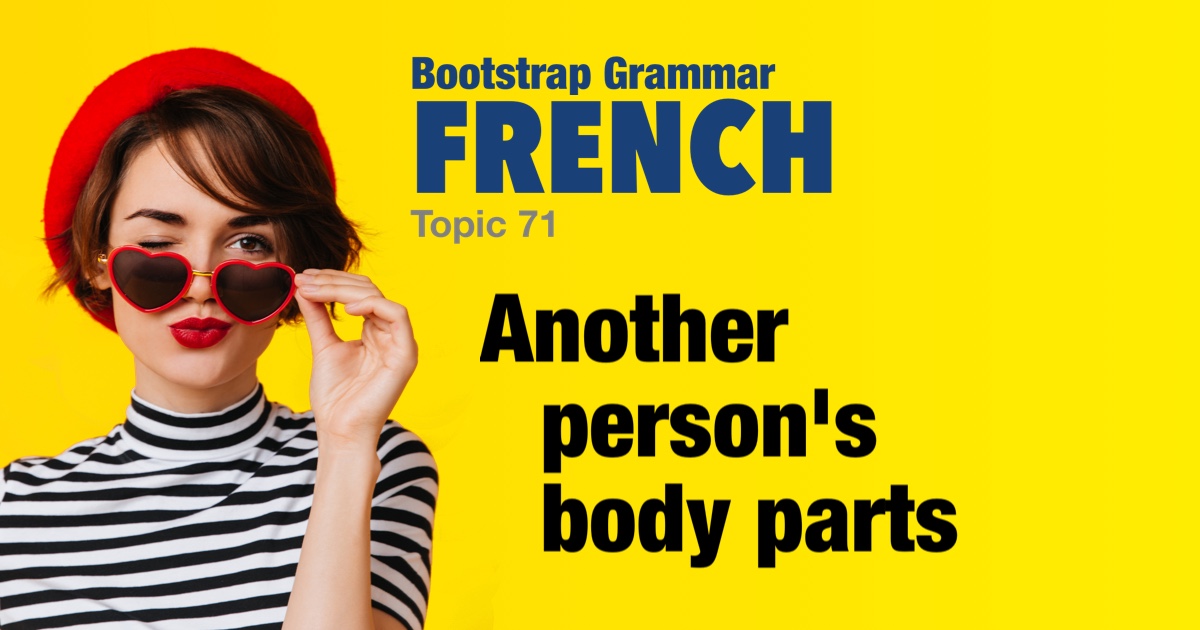French grammar - Another person's body parts |
|||
|
|||
As discussed earlier, when referring to a part of the body in French we don't use the possessive adjective ('my leg' or 'his back') but instead we use the definite article (la jambe or le dos). This includes when referring to other people's body parts. This means that we need some other device to specify whose body part we are referring to. The indirect object pronouns can be used for this purpose. -- Recall that indirect object pronouns imply that something is being done 'for someone' or 'to someone'. Or we can simply use the possessive de to say 'the body part of someone'. |
| Examples: | |
|
Mon père me brosse les dents.
My father brushes my teeth (for me).
|
|
|
Paul est jeune. Je lui brosse encore les dents.
Paul is young. I still brush his teeth (for him).
|
|
|
Lui brosse-t-elle les cheveux ?
Does she brush his∆her hair (for him∆her)?
|
|
|
Je leur lave le visage.
I wash their faces (for them).
|
|
|
Est-ce qu'elle te lave les mains ?
Does she wash your (familiar) hands (for you)?
|
|
|
Est-ce que la nounou te lave les mains ?
Does the nanny wash your hands (for you)?
|
|
|
Pouvez-vous nous laver les mains ?
Can you (formal) wash our hands (for us)? |
|
|
Elle lui coupe les cheveux.
She cuts his hair (for him). |
|
|
Pourquoi lui ne brossez-vous pas les dents ?
Why don't you brush his∆her teeth (for him∆her)?
|
|
|
Je ne leur lave pas le visage.
I don't wash their faces (for them). |
|
|
Est-ce qu'elle coupe les ongles d'Éléa ?
Is she is cutting Elea's fingernails?
|
|
|
Oui, elle lui coupe les ongles.
Yes, she is cutting her fingernails (for her). |
|
 |
|




